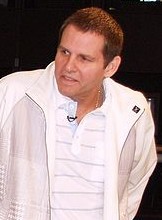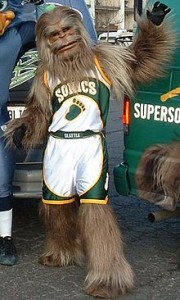If the Kings do leave for Seattle, it is the longest of long shots that the NBA would ever return. So at that point, the obvious and objective answer would be:
No, Sacramento is not a big league town.
As many cities have proven, however, you don’t have to be attractive to more than one league to succeed. NBA franchises in San Antonio, Oklahoma City, Portland, Salt Lake City and Orlando are doing fine.
 But the passion has subsided in Sacramento – much like it did, ironically, in Seattle, where the Kings may be moving – and perhaps it is understandable.
But the passion has subsided in Sacramento – much like it did, ironically, in Seattle, where the Kings may be moving – and perhaps it is understandable.
After a great run with the likes of Chris Webber, Vlade Divac, Mike Bibby, Peja Stojakovic and others, the Kings have had their problems. They have not been to the playoffs since 2006 and during that stretch, they’ve won 40 percent or more of their games only twice.
There has been constant speculation the last couple of years that they were going to move to a bigger market, so that hasn’t helped attendance, which ranked 29th and 27th, respectively, the last two years.
This season, the Kings are dead last – 30th – but, again, they are plagued by the Maloof ownership team that has longed to leave the last two years; the reality that a move is inevitable; and, significantly, another lousy team. The Kings are winning at a 35 percent clip. They are a wounded franchise. If the Kings were a horse, the NBA would put them down.
 The business of the NBA can be a painful one for fans. Seattle supported the Sonics for most of their 41 years, but lousy ownership, stubborn politicians and a public that objected to building a third new facility with public funds sent the Sonics to Oklahoma City. It’s more complicated than that, but there is little doubt there was a significant element in Seattle that didn’t want to spend a dime on the Sonics.
The business of the NBA can be a painful one for fans. Seattle supported the Sonics for most of their 41 years, but lousy ownership, stubborn politicians and a public that objected to building a third new facility with public funds sent the Sonics to Oklahoma City. It’s more complicated than that, but there is little doubt there was a significant element in Seattle that didn’t want to spend a dime on the Sonics.
Much has been made about leagues and wealthy owners holding cities and taxpayers hostage with the message of: Build an arena for my team, let me keep most of the profits, you take the risk. And if you don’t, we’ll go somewhere else.
The choice is a clear one and also is the answer to the question: How much do you value the franchise for your city? What does it mean to you? And will your city be better off without it?
For some in Seattle, the response was: Good riddance.
Sacramento Mayor Kevin Johnson, the former star point guard of the Phoenix Suns, knows the value of a sports franchise to the self-image of a city. It’s not only the games and the entertainment, it’s the role a team can play for the city’s image, the ability of a city to attract new businesses because it has the image of being major league.
At their best, sports franchises are uplifting to youth and, again, at their best, can provide role models and dreams. But in smaller markets, teams have to be nursed by local big business, government, ticket buyers and taxpayers.
If they don’t, they take their ball and go somewhere else. Seattle discovered that in 2008.
Johnson has done everything possible to keep the Kings, who have not had the recent joy of competent ownership. But if the Kings leave – by the way, for fans of irony, Seattle is in King County – the citizens and politicians of Sacramento who were reluctant to make a deal years ago will have discovered the difference a sports franchise can make in a city being major or minor league.
Jan Hubbard has written about basketball since 1976 and worked in the NBA league office for eight years in between media stints. Follow him on Twitter at @whyhub. For Hubbard’s archive from SheridanHoops.com, click here.
Jan Hubbard, you should be ashamed of the ignorance you showed in this article. Never talk about the situation in Sacramento again. Ever.
Seattle is more sexy.